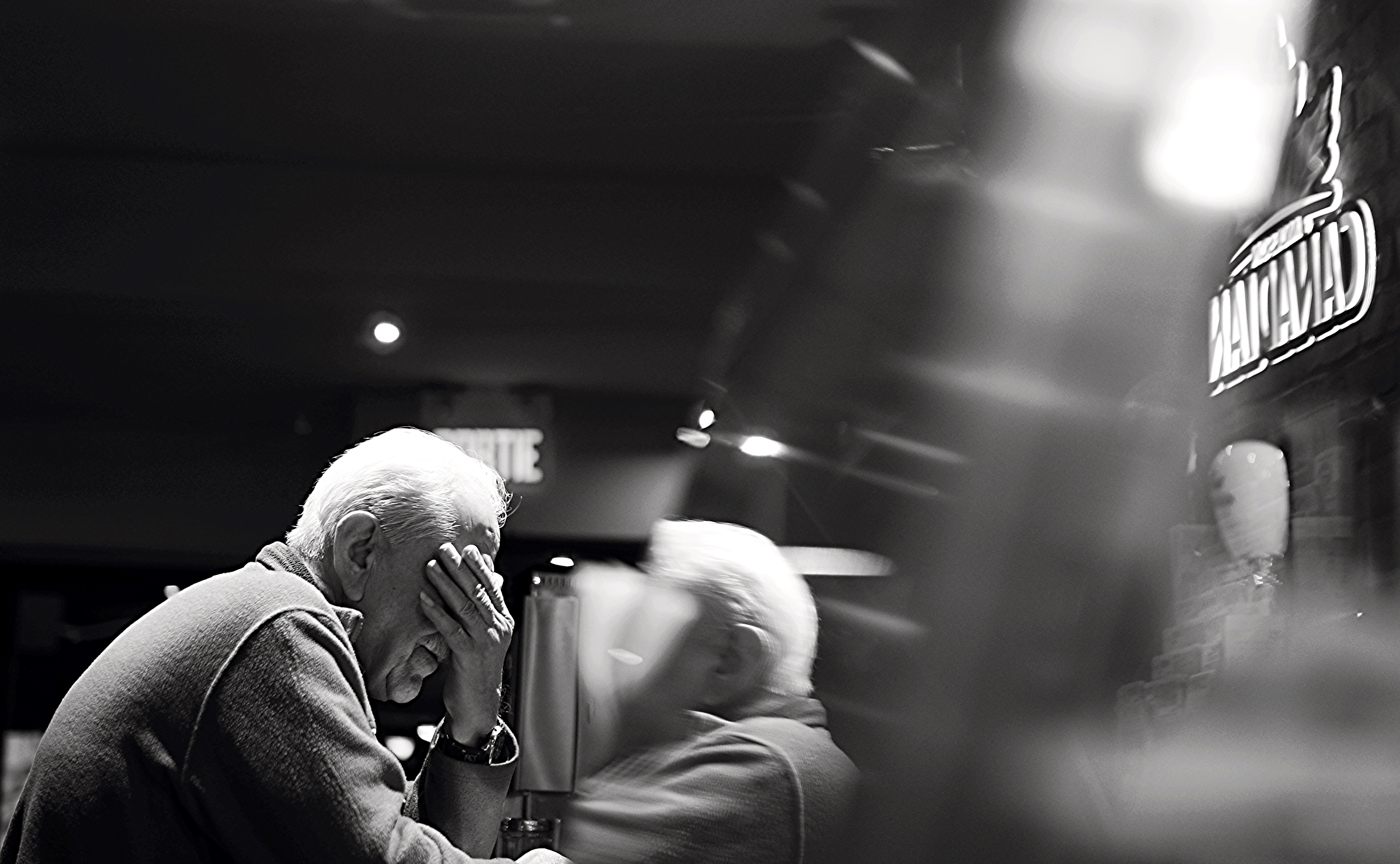By: James E. DelGenio MS, LCPC
Senior Staff Therapist,
The Family Institute at Northwestern University
Ten Steps to Better Mental Health
1. Take the medication as prescribed by your doctor.
• “I don’t miss often; maybe once per week.”
The number one cause of relapse to symptoms is medication non-compliance. This is a tough one. For psychiatric medication to be effective, it must be taken daily as prescribed. I consider compliance to be missing no more than 5 pills per year! Many people don’t like to take medication, especially if it means daily for life. Let’s take one step at a time and see what it’s like to function to your capacity for a year or two before you make decisions about the rest of your life.
But remember, clinical depression is a lifelong illness and it’s all about a chemical imbalance. It is a biological problem first and foremost. It’s like being a diabetic: you must take the medication as prescribed in order to be well. You wouldn’t like it but you would take the insulin injection. This is just chemistry.
2. No caffeine, substance use/abuse, or alcohol.
• “It’s not the caffeine. I like coffee. It doesn’t affect me. I’ve always drank coffee.”
Whether it’s coffee, power drink, soda or tea, caffeine can interfere with sleep and create anxiety. It is the most obvious reason for poor sleep. With your doctor’s supervision to avoid anxiety and headaches, gradually reduce your daily caffeine use. Eventually, when you are caffeine free, I believe, you will feel and sleep better.
I would certainly recommend gradually reducing caffeine use before asking the doctor for a sleep aid. Caffeine may interfere with your sleep/wake cycle. As far as your mental health, I recommend keeping caffeine to a minimum and before noon.
I also don’t recommend working the night shift i.e., midnight to 8 AM. It is difficult for your body to adjust. For a person with a mood disorder, this is not recommended. The back and forth between day and night shifts and the social isolation are risky to one’s mental health. It also wreaks night havoc with the sleep/wake cycle. Lack of sleep for a client with a bipolar disorder may bring about rapid mood fluctuations and jeopardize stability. Tell your doctor or your therapist if you are not sleeping. Wouldn’t it be better to reduce the caffeine rather than take a habit-forming sleeping pill?
• “What? I can’t have a glass of wine with dinner? I don’t do it every day. It’s just one glass. It’s not like I’m an alcoholic.”
The second leading cause of relapse to symptoms of depression is alcohol and substance use. Some doctors and even therapists say that it is all right to have one or two drinks if you have no alcohol abuse or dependence issues. I still question this because alcohol is a depressant. Why would you take a depressant when you are already depressed?
Alcohol may affect your mood for days, even weeks. At least track your mood on the calendar after you have been drinking to see if it has made your symptoms worse. Especially monitor the first three few days of being alcohol free. As far as alcohol and substance use, it is as simple as it is hard. If it interferes with your life, your daily functioning, or your relationships, don’t do it! Need help! Contact your doctor.
There is a negative correlation between the use of alcohol or drugs and symptoms of a mood disorder. Their is an increased chance of dependence and risk (70% to 90%) of relapse to the symptoms of your mood disorder. The consequences are just not worth it. Connect the dots! Denial or not! The essential point here is that for many people USE IS THE SAME AS ABUSE!
I recommend you discuss this with your doctor. If you already know you have a problem, get into Rehab. It’s never too late to turn your life around. Get professional help and go to your Alcohol or Narcotics Anonymous meetings as often as it is necessary to maintain sobriety. Even if you are not dependent, alcohol or pot may not be a healthy choice for you. Don’t deny the obvious. So, remember, the healthy use of alcohol for one person, may not be a healthy for you. Make healthy choices!
3. Take care of your physical health.
Be sure to have annual dental and physical exams. Some medications require regular blood testing. Some physical ailments can cause depression. See your doctor regularly.
4. Exercise
People with mood disorders tend to be sedentary. They need to walk and get exercise as much or more than any of us. You don’t have to join a gym; all you need to do is take a brisk walk. You don’t have to run but you do have to hustle a little bit. Studies going back thirty years or more say that cardiovascular exercise lifts one’s mood and reduces anxiety. The more recent studies show that those old studies are true but the walk needs to be at least 40 minutes to get the full benefit toward lifting your mood and reducing anxiety.
Walk at least 4 times per week. I also recommend that you pick your days, otherwise you will say, “I don’t feel like it today; I’ll do it tomorrow.” Tomorrow comes and the same thing happens. If you make a schedule and stick to it (say, Monday, Wednesday, Friday, and Sunday), the day of the week makes the decision for you. “Oh darn, today is Monday. I have to walk.” Remember, depression affects one’s motivation; if you wait until you want to do it, it may never happen.
Note: Always consult with your doctor before starting any exercise program.
5. Plan to have fun
It’s good to have fun; have fun! When my son was about four years old, I remember distinctly, it was a beautiful summer day. Our front door was open and he stood there and saw children outside playing. He said, “Dad, there are kids out there! Can I go out and play?”
My point is that when you are a child, all it takes is something as simple as finding other kids and the party is on! As an adult, it takes planning, especially if you have a mood disorder. You need to take time to plan to have fun. Join a bowling league, take a pottery class or cooking class, take ballroom dancing, or take a photography class at the local park district. Take an adult education class at your local community college or park district. It’s not about the grade so you can also skip the tests and homework. These are inexpensive and fun and a great way to meet your socialization goals!
• Do it to be more social.
• Don’t do it for a grade.
• Do it because you are interested in it.
• Do it to help manage your symptoms and to structure your free time.
6. Make time to nurture your relationship.
Line up sitters so you can have time alone with your spouse or significant other. This may feel awkward at first but keep it up anyway. Gentlemen, don’t let the wife be responsible for all the social and vacation planning. Do your share. Plan a date night. When you go to dinner, discuss your next date night, event, or do vacation planning. Don’t use the date night to discuss difficult issues. This is should be a fun time and a way to nurture your relationship. If you are going to have fun, you are going to have to plan ahead!
7. Be social
A common symptom of a mood disorder is social dysfunction or social isolation. Human beings are by nature social creatures, but unfortunately, a common symptom of mood disorders includes social isolation and/or withdrawal. Call a friend and make a lunch date. Have people over to play cards or watch a sporting event. If you don’t have a large social network, use the park district or local community college to meet people. Taking a class or joining the volleyball league at least gives you an opportunity to be with people and make a friend. While meeting strangers may seem intimidating, think of it this way: if you don’t know them to begin with, then you really have nothing to lose if things don’t work out. On the other hand, you never know when a stranger can turn into your new best friend, business partner, or love interest!
8. Hobbies
Try woodworking, paint by number, sewing, knitting, crossword puzzles, gardening, toy trains, arts and crafts, or whatever you choose! Go to a hobby shop and look around but pick something and stick to it. Work on your hobby several times per week or when you are feeling low, negative, or worrisome. It is quite possible you will enjoy the activity so much that you will forget about your symptoms for a while. Hobbies are a great way to distract yourself from troubling thoughts when one else is around.
9. Chores
Most any physical activity is a good distraction from your negative ruminating thoughts and symptoms. Chores are another way to distract yourself and give you a clean environment. When you have depression, the idea of cleaning the entire house or apartment can be overwhelming. Break your chores down into one or two chores each day. For example:
• Monday is vacuuming
• Tuesday is bathroom cleaning
• Wednesday is washing the floor
• Thursday is cleaning the kitchen
• Friday is changing the sheets and towels day
• Saturday is laundry day
• Sunday is a free day. It is your reward for doing your chores all week long.
Chores are a great way to distract yourself from your symptoms. Most any physical activity will help. Make a schedule and stick to it. Try to come up with your own list of distraction activities. The more things you try, the less likely you will be a victim of your disorder.
10. Make healthy choices
This is my generic one. This one may very well be different from person to person. A healthy choice for one person may not be healthy for you. If you have a mood disorder, poor sleep, too much caffeine, alcohol or drug use, and social isolation are mental health issues. Remember! You manage it, or it will manage you!
Zoom! Now I can work via Zoom with anyone, anywhere in the country and it is currently covered by BCBS Insurance. Check with your BCBS representative for more information.
Call James E. DelGenio MS, LCPC, Senior Staff Therapist at The Family Institute at Northwestern University, 847-733-4300 Ext 638.
http://jamesdelgenio.com
http://family-institute.org
http://takenotelessons.com Highly effective online, one on one, SAT, ACT, GRE, standardized test preparation, via face time or skype.
Disclaimer: This material is meant to be used in conjunction with psychiatric treatment, medication, if necessary, and supportive therapy. Always share this material and your questions about this material with your doctor and therapist.







